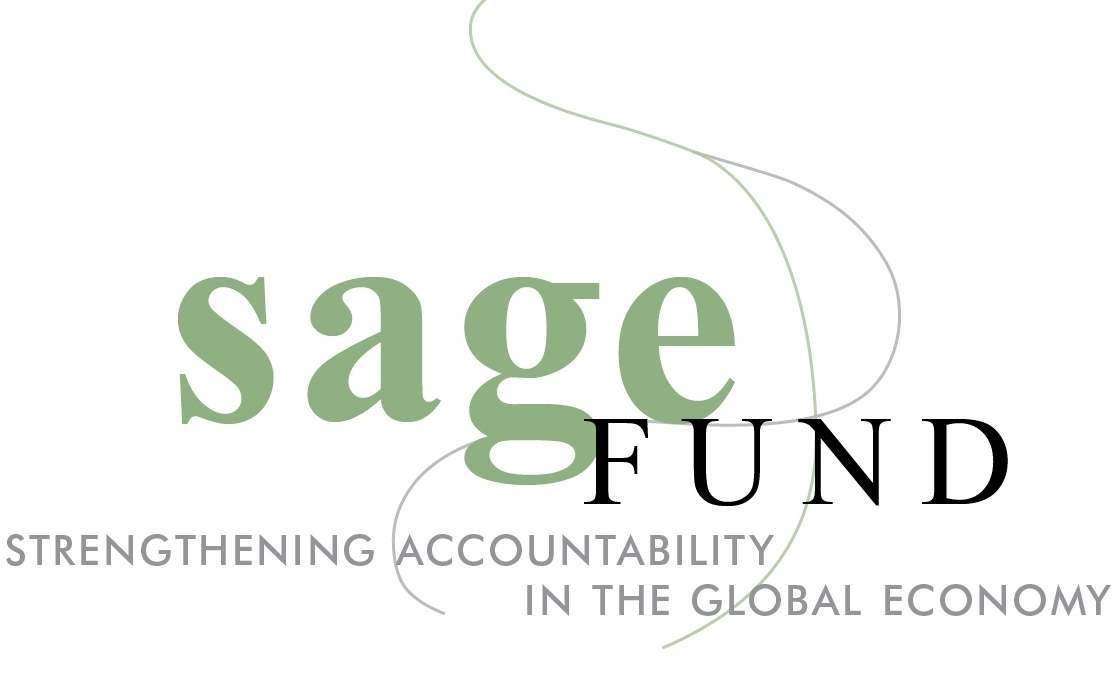grant round
Access to Remedy and OGM
In 2016, the SAGE Fund supported a second round of grants with a thematic focus on ensuring access to remedy in the design and use of Operational Grievance Mechanisms (OGMs). Functioning at the project level, an OGM is a type of non-judicial accountability mechanism designed to handle complaints, resolve disputes and provide remedy to communities and individuals harmed by business operations. Located “closest” to where abuses occur, OGMs are theoretically easier to access and more expeditious in providing remedy than the court system. Given the limited yet contested use of OGMs to date, there is a need for robust, impartial analysis of these mechanisms and an opportunity to provide detailed guidance for their future design and implementation. Responding to this opening, the SAGE Fund has taken an active role in crafting a set of complementary and interlinked projects that include several elements:
Expert Advisory Panel to generate legal and policy analysis on the principles, conditions and elements of OGMs, including consideration of how OGMs as non-judicial grievance mechanisms should interface with judicial remedy systems;
Ground-level Support to Affected Communities navigating the use of an OGM in order to improve their outcomes and remedy, building capacity at the local and national level to pursue a range of remedy strategies (not limited to using an OGM), and documenting the use of OGMs as an input into the broader analysis of the Expert Advisory Panel; and
Consultative Group comprised of diverse range organizations with expertise in human rights and the use of OGMs to provide inputs into the Expert Advisory Panel process, enhancing its breadth of analysis.
grant round locations
ICJ Expert Advisory Panel on OGMs
The project will develop guidance for use by companies and other stakeholders in the design and implementation of Operational Grievance Mechanisms. The ICJ will establish an advisory panel of experts to conduct research and analysis of existing standards and practice, the operation of existing OGMs, and consultation with affected communities, experts in the field and other civil society actors. The project will produce detailed legal analysis and substantive guidance that creates an authoritative reference in the field, which can be used to both positively shape the future design and implementation of OGMs and define limits on their use.
organization
International Commission of Jurists (ICJ), icj.org, Geneva, Switzerland
Access to Remedy, Cambodia
The project will support EC’s efforts to seek remedy on behalf of and in partnership with indigenous communities affected by economic land concessions granted to the Vietnam Rubber Group (VRG) and Hoang Anh Gia Lai (HAGL) for the development of rubber plantations, resulting in land grabs and human rights violations. Employing a tool that was piloted in the first round of SAGE Fund grants, EC will work with Inclusive Development International (IDI) to perform an investment chain mapping of the plantation investment projects, using the findings to tailor transnational advocacy strategies. EC will provide documentation and analysis of the communities’ efforts to access VRG’s Operational Grievance Mechanism, channel that into the ICJ Expert Advisory Panel project.
organization
Equitable Cambodia (EC), landportal.org/organization/equitable-cambodia, Cambodia
Access to Remedy, Tanzania
The project will support LHRC’s efforts to seek remedy for victims of human rights violations caused by the use of force by mine security at the North Mara Gold Mine. Efforts will include strategic litigation and the use of Acacia Mining’s Operational Grievance Mechanism, while analyzing and critiquing the OGMs functioning. This project will build on previous efforts by LHRC together with Mining Watch Canada and Rights and Accountability in Development (RAID) over the past five years to advance remedy for victims, highlight problems in the operation of the mine, and seek redress. LHRC will provide documentation and input into the ICJ Expert Advisory Panel, and will host a site visit by the Panel to the mining site and affected communities.
organization
Legal and Human Rights Centre (LHRC), humanrights.or.tz, Tanzania




